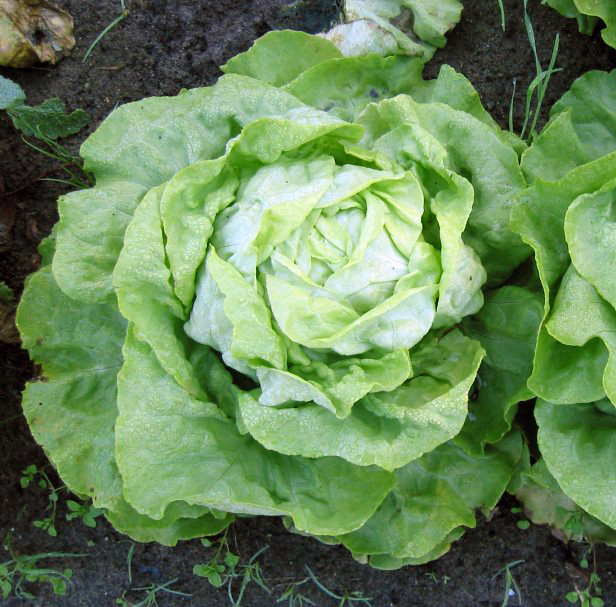U.S. Department of Agriculture (USDA)
See the following -
Genetically Modified Crops Resistant to 2,4-D Spur Debate, Calls for Labeling
A debate over genetically modified organisms (GMOs) is raging across the country from farms to the federal government. A company called Dow Chemical is on the verge of getting approval for a new genetically engineered corn that's supposed to be immune to the chemical weedkiller "2,4-D" - a primary component of Agent Orange, the New York Times reported. Read More »
- Login to post comments
Got Milk? Got Drugs? Got Both?: State Responds After Idaho Dairy Cattle Test Positive In Food Safety Tests
The [FDA] is worried about what it calls an "important potential public health issue." It could be in your latte or your child's bowl of breakfast cereal. It could be in your refrigerator or freezer. At the very least, the FDA wants to make certain that it's not in any of the 8 million milk-producing cattle in the United States or the 500,000 dairy cows in Idaho. Read More »
- Login to post comments
How "Open Source" Seed Producers from the U.S. to India Are Changing Global Food Production
 Frank Morton has been breeding lettuce since the 1980s. His company offers 114 varieties, among them Outredgeous, which last year became the first plant that NASA astronauts grew and ate in space. For nearly 20 years, Morton’s work was limited only by his imagination and by how many different kinds of lettuce he could get his hands on. But in the early 2000s, he started noticing more and more lettuces were patented, meaning he would not be able to use them for breeding...
Frank Morton has been breeding lettuce since the 1980s. His company offers 114 varieties, among them Outredgeous, which last year became the first plant that NASA astronauts grew and ate in space. For nearly 20 years, Morton’s work was limited only by his imagination and by how many different kinds of lettuce he could get his hands on. But in the early 2000s, he started noticing more and more lettuces were patented, meaning he would not be able to use them for breeding...
- Login to post comments
How America’s Dairyland Is Polluted By Factory Farms
The slogan on Wisconsin’s license plate—“America’s Dairyland”—celebrates the state’s number one agricultural activity and iconic status as a milk and cheese producer. What it doesn’t reveal is how dramatically the dairy industry in Wisconsin and in other parts of the U.S. has been changing, or the environmental concerns those changes pose. Read More »
- Login to post comments
How's The Sausage Made? These Folks Really Want To Share The Knowledge
With the current bloom of artisanal small-batch producers across the country, you'd think that all you need to start up a new food business is a good idea and a lot of gumption. And for the most part, that's true. But when it comes to artisanal producers working with meat, you also need something else: a Hazards Analysis and Critical Control Points plan. Or, if you will, a HACCP. Read More »
- Login to post comments
In The Belly Of The Beast
Sarah – let’s call her that for this story, though it’s neither the name her parents gave her nor the one she currently uses undercover – is a tall, fair woman in her midtwenties who’s pretty in a stock, anonymous way, as if she’d purposely scrubbed her face and frame of distinguishing characteristics. [...] It’s the worst job she or anyone else has had, but Sarah isn’t grousing about the conditions. She’s too busy waging war on the hogs’ behalf. Read More »
- Login to post comments
Increase In Use Of Livestock Antibiotics Linked To Superbugs. . .Again
Two reports released last week add to the growing concerns surrounding the overuse of antibiotics in livestock and the corresponding public health and safety impacts of increases in antibiotic-resistant bacteria, known as superbugs...
- Login to post comments
Is the Consolidation of the Food Industry Turning Lettuce into a Weapon of Mass Destruction?
 In the summer of 2006, consumers across the country began falling sick from a particularly nasty strain of Escherichia coli bacteria, known as 0157:H7. Not all E. coli bacteria are dangerous, but 0157:H7 belongs to the Shiga toxin-producing group of pathogens (known as STEC), which can cause severe, and sometimes fatal, illness. By early October, 199 people in twenty-six states had fallen ill, resulting in 102 hospitalizations and thirty-one cases of kidney failure. Three people died, including a two-year-old boy in Utah...
In the summer of 2006, consumers across the country began falling sick from a particularly nasty strain of Escherichia coli bacteria, known as 0157:H7. Not all E. coli bacteria are dangerous, but 0157:H7 belongs to the Shiga toxin-producing group of pathogens (known as STEC), which can cause severe, and sometimes fatal, illness. By early October, 199 people in twenty-six states had fallen ill, resulting in 102 hospitalizations and thirty-one cases of kidney failure. Three people died, including a two-year-old boy in Utah...
- Login to post comments
Monsanto GMO Wheat Contamination Discovered In Montana
Monsanto’s experimental genetically modified wheat has been discovered growing in the second US field in Montana, about a year after the discovery of the company’s unapproved crop growing in Oregon disrupted US wheat exports...
- Login to post comments
Monsanto Supersizes Farmers’ Weed Problem, But Science Can Help
When Monsanto came up with its Roundup Ready system of genetically engineered seeds in the 1990s, designed for immunity to the herbicide glyphosate, the Big Ag giant seemed like a superhero to farmers looking for an effective way to fight weeds. Read More »
- Login to post comments
New Salmonella Outbreak In Chicken Resists Antibiotics
A salmonella outbreak linked to raw chicken from California involves several antibiotic-resistant strains of the disease and has put at least 42% of the victims in the hospital, the Centers for Disease Control and Prevention said Tuesday. Read More »
- Login to post comments
Researchers To Investigate If Farming Practices Are Increasing Antibiotic Resistant Superbugs
Projects to track antibiotic-resistant bacteria in the livestock sector are being conducted by researchers at Colorado State University in the United States...
- Login to post comments
Salmonella And The Shutdown: CDC Furloughs Harm Public Health
Food expert Marion Nestle asks whether government-shutdown-mandated furloughs at the Centers for Disease Control and Prevention hampered its response to the salmonella outbreak at Foster Farms. Read More »
- Login to post comments
Saturated Fat Phobia Lacks Scientific Basis
Strictures against saturated fat, which have constituted U.S. government policy for over three decades, are deeply embedded in the nation’s consciousness. Yet a recent medical journal article is questioning the merits of such policies. Read More »
- Login to post comments
Scientists Discover What’s Killing The Bees And It’s Worse Than You Thought
As we’ve written before, the mysterious mass die-off of honey bees that pollinate $30 billion worth of crops in the US has so decimated America’s apis mellifera population that one bad winter could leave fields fallow. Now, a new study has pinpointed some of the probable causes of bee deaths and the rather scary results show that averting beemageddon will be much more difficult than previously thought. Read More »
- Login to post comments